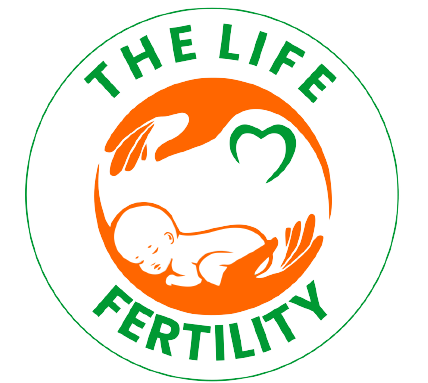A cancer diagnosis can bring a whirlwind of emotions and decisions. While your primary focus is undoubtedly on your health and treatment, it’s also important to consider the potential impact cancer and its treatment may have on your future fertility. The good news is that fertility preservation options are available to help you safeguard your dream of having a family.
Fertility preservation for cancer involves taking steps to protect your reproductive potential before undergoing cancer treatment. This may include freezing sperm, eggs, or embryos, or in some cases, even preserving ovarian or testicular tissue. These techniques offer hope and the possibility of having a biological child after cancer treatment is complete.
This guide is designed to be a source of reliable information and support as you navigate fertility preservation options. We’ll explore the impact of cancer treatment on fertility, discuss the various preservation methods available, and answer common questions you may have.
The Impact of Cancer Treatment on Fertility
Cancer treatment, while life-saving, can sometimes have unintended consequences, including affecting your fertility. It’s important to understand how different cancer treatments can impact your reproductive system so you can make informed decisions about fertility preservation.
How Cancer Treatment Affects Fertility
- Chemotherapy: Chemotherapy drugs are powerful medications that destroy cancer cells, but they can also damage healthy cells, including those in your reproductive organs. This can lead to temporary or permanent infertility in both men and women.
- Radiation Therapy: Radiation therapy uses high-energy rays to kill cancer cells, but it can also harm nearby healthy tissues, including the ovaries or testicles. The extent of the damage depends on the location and dose of radiation.
- Surgery: Surgery to remove tumors or affected organs can sometimes involve removing reproductive organs, such as the testicles or ovaries, leading to infertility.
The Importance of Fertility Preservation for Cancer
The potential impact of cancer treatment on fertility can be a significant source of emotional distress for patients. Fertility preservation offers a way to maintain hope and the possibility of having a biological child in the future.
Preserving your fertility can:
- Provide peace of mind: Knowing that you have options for having a family after cancer treatment can reduce anxiety and help you focus on your recovery.
- Maintain reproductive autonomy: Fertility preservation allows you to make choices about your future family planning, regardless of the impact of cancer treatment.
- Offer hope for the future: It can be a source of hope and motivation during a challenging time, reminding you that there is life after cancer and the possibility of creating a family.
If you’re facing cancer treatment, it’s crucial to discuss fertility preservation options with your healthcare team as early as possible. They can help you understand the potential risks to your fertility and guide you through the decision-making process.
Fertility Preservation Options for Men with Cancer
If you’re a man facing cancer treatment, there are fertility preservation options available to help protect your ability to have children in the future. The most common and well-established method is sperm cryopreservation, also known as sperm freezing or sperm banking.
Sperm Cryopreservation for Cancer Patients
Sperm cryopreservation is a relatively simple and straightforward procedure. It involves collecting a semen sample through masturbation and freezing it for future use. The sperm is carefully preserved using special cryoprotective agents and stored in a secure facility called a sperm bank.
The process typically involves:
- Consultation and Screening: You’ll meet with a fertility specialist to discuss your medical history and undergo a semen analysis to assess sperm quality.
- Sperm Collection: You’ll provide a semen sample in a private room at the clinic or sperm bank.
- Freezing and Storage: The sperm is frozen using specialized techniques and stored in liquid nitrogen tanks for long-term preservation.
Frozen sperm can be stored for many years, potentially indefinitely, and can be used later for various fertility treatments, such as intrauterine insemination (IUI) or in vitro fertilization (IVF).
Testicular Tissue Cryopreservation
For prepubertal boys or men who cannot produce a sperm sample, testicular tissue cryopreservation may be an option. This experimental procedure involves surgically removing a small piece of testicular tissue and freezing it. While this technique is still under development, it holds promise for preserving fertility in younger patients.
If you’re a man with cancer, it’s crucial to discuss sperm cryopreservation with your healthcare team as soon as possible. They can help you understand your options and make the best decision for your individual circumstances.
Fertility Preservation Options for Women with Cancer
For women facing cancer treatment, several fertility preservation options are available, depending on factors such as age, type of cancer, and treatment plan. These options aim to protect your ability to have children in the future.
Embryo Cryopreservation for Cancer Patients
Embryo cryopreservation, or embryo freezing, is a well-established option for women who have a partner. It involves undergoing in vitro fertilization (IVF) to retrieve eggs, fertilize them with sperm, and then freeze the resulting embryos for future use.
The process typically involves:
- Ovarian Stimulation: You’ll take medications to stimulate your ovaries to produce multiple eggs.
- Egg Retrieval: A doctor will retrieve the eggs through a minor surgical procedure.
- Fertilization: The eggs will be fertilized with sperm in a laboratory.
- Embryo Freezing: The resulting embryos are frozen and stored for future use.
Oocyte Cryopreservation for Cancer Patients
Oocyte cryopreservation, or egg freezing, is an option for women who do not have a partner or prefer to preserve their eggs before fertilization. The process is similar to embryo freezing, but the unfertilized eggs are frozen instead of embryos.
The process typically involves:
- Ovarian Stimulation: You’ll take medications to stimulate your ovaries to produce multiple eggs.
- Egg Retrieval: A doctor will retrieve the eggs through a minor surgical procedure.
- Egg Freezing: The eggs are frozen using specialized techniques and stored for future use.
Ovarian Tissue Cryopreservation
For prepubertal girls or women who cannot undergo ovarian stimulation, ovarian tissue cryopreservation may be an option. This experimental procedure involves surgically removing a portion of the ovary and freezing it. While still under development, it offers hope for preserving fertility in certain situations.
If you’re a woman with cancer, it’s essential to discuss your fertility preservation options with your healthcare team as soon as possible. They can help you understand your choices and make the best decision for your individual circumstances.
Benefits and Considerations of Fertility Preservation for Cancer (200-250 words)
Fertility preservation offers cancer patients the chance to protect their reproductive potential and maintain hope for building a family in the future. It’s a proactive step that can bring peace of mind during a challenging time.
Benefits of Fertility Preservation for Cancer:
- Maintaining Reproductive Options: Fertility preservation allows you to explore your options for having biological children after cancer treatment, even if your fertility is affected.
- Reducing Emotional Distress: Knowing that you have options for family building can alleviate anxiety and provide a sense of control during a difficult period.
- Offering Hope for the Future: Fertility preservation can be a source of hope and motivation, reminding you that there is life after cancer and the possibility of creating a family.
Considerations for Fertility Preservation:
- Type of Cancer and Treatment: The type of cancer and its treatment plan will influence the most suitable fertility preservation options.
- Age and Health: Your age and overall health will also play a role in the decision-making process.
- Personal Circumstances: Your personal circumstances, such as whether you have a partner or desire to have children in the future, will also be considered.
- Financial and Time Constraints: Fertility preservation procedures can be costly and may require some time commitment, so it’s important to discuss these factors with your healthcare team.
Ultimately, the decision to pursue fertility preservation is a personal one. It’s crucial to weigh the benefits and considerations carefully and discuss your options with your oncologist and a fertility specialist to make the best choice for your individual needs.


